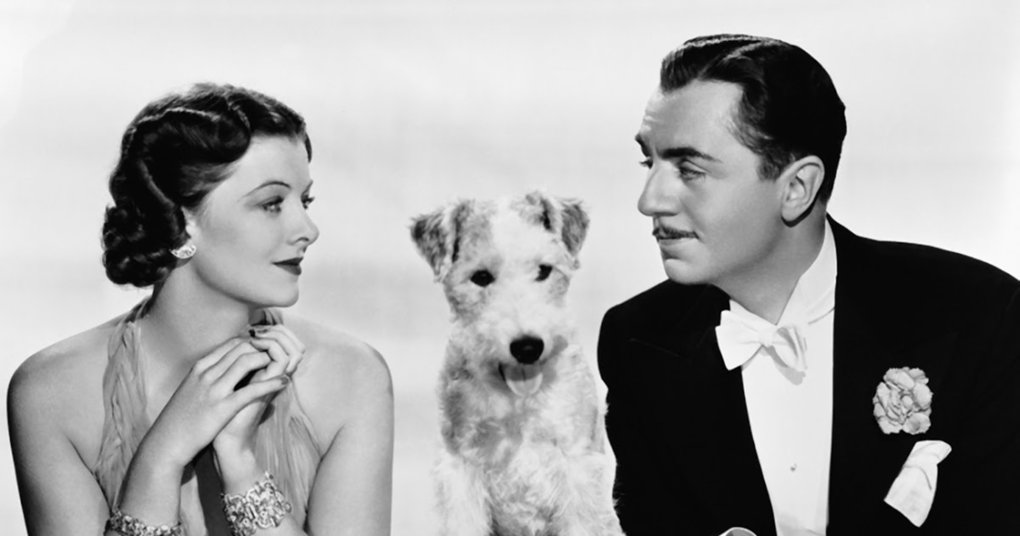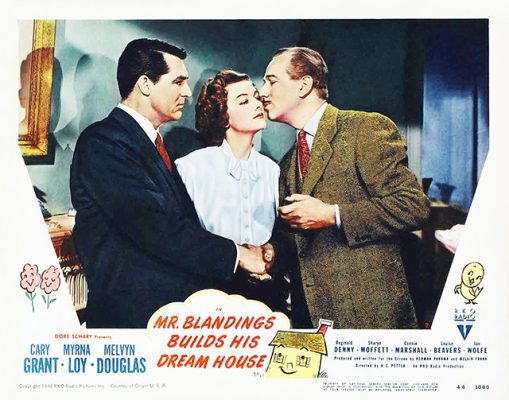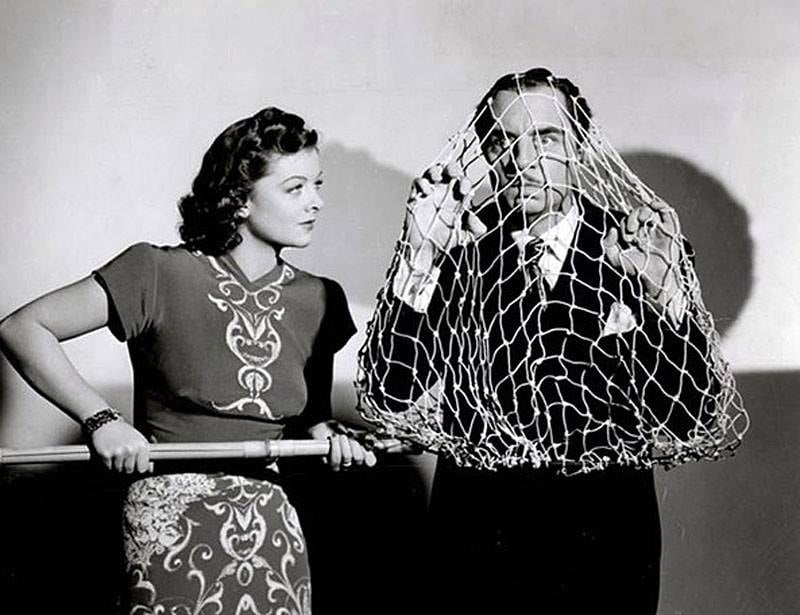James Kotsilibas-Davis and Myrna Loy
Bloomsbury, 1987.

Myrna Loy’s film career spanned from 1925 to 1980. She is most well known for films in which she played a “perfect wife” – beautiful, intelligent and witty – in the Thin Man series of films with William Powell, and in Mr Blandings Builds His Dream House with Cary Grant and Melvyn Douglas.
Her autobiography with references to all the famous people she knew and the behind the scenes doings of Hollywood and politics should have made fascinating reading. Sadly, I found the writing style so matter of fact, with little emotion, reading it was sometimes hard going rather than captivating. But here are some nuggets:
Her fashion tip not to wear clothes that are too flashy:
“When someone says “What a beautiful gown!” instead of “How nice you look!” there’s something wrong with your gown.” (Page. 97).
Her film roles often portrayed her in a perfect marriage. The reality of her private life was very different. She married four times. Her first husband Arthur was obsessively controlling, her second husband John beat her. and her third husband Gene was serially adulterous.
“Just before I left Arthur for the last time, John Hertz, Jr., came to a dinner party at our house. […] During dinner, he took my hand in his. “You’re the beloved of millions,” he told me, “but your hands are cold and sweaty.” Arthur had driven me to this point, no question about it. I was a wreck, nervous and obviously vulnerable. John started working on that immediately. It didn’t occur to me that I might be leaping from the frying pan into the fire.” (Page 172).
Myrna married John and things started well for a few months, but he soon became violent towards her. She writes about the occasion when the then U.S. President, F. D. Roosevelt, who was a fan of her films, invited her over:
“when the Roosevelts were entertaining Queen Wilhemina of the Netherlands at Hyde Park, they asked me to come out and repeat a sketch I’d done in John Golden’s Army Emergency Relief show. Well, I was elated, thinking, At last I’m going to meet the President! Unfortunately, there was some trouble in paradise at my house. John came home very loaded one night and we got into a terrible fight. I don’t know whether he hit me himself or hit me with something, but in any case I woke up next morning with a terrible mouse under my eye. Reluctant to do so, but unprepared to face the Roosevelts with a black eye, I cancelled my visit and forfeited the chance to meet the President.” (Page 180).
During the Second World War, she did a lot of relief work, including visiting soldiers in hospital:
“My first hospital visit was to Halloran, on Staten Island, where they were bringing back burn victims from Egypt all wrapped up in bandages with only bewildered eyes showing – if they were lucky. Oh, my God, it was awful! But I managed to get through it, with the brass who escorted me watching very carefully for signs of weakness. I learned about courage from those incredible young men; their positive attitude made you try harder. You had to be completely natural with them, and sometimes I didn’t quite know how. When they joked about their injuries, you wanted to cry, but they wouldn’t accept pity, nor would they allow you to pretend to ignore their injuries.” (Page 182).
In addition to her film career, she had a parallel life working for the Democrats and for various organisations of the United Nations:
“the U.N. is not merely a rhetorical forum that conflicting nations run to when it’s usually too late; it is an organization dedicated to nurturing co-existence as a viable alternative to armed confrontation. Idealistic? Certainly! But what more essential aspiration could men and nations have?” (Page 227).
Myrna reflects on celebrity. In 1935 once she had become a big star:
“I met Elsa Maxwell at another party. She started laying out all these plans for me, sort of passing me on to her fashionable friends in London and Paris. It struck me as an interesting phenomenon, and still does, the way “society” courts young successful actresses; they use them, really. It’s a kind of game they play, getting the celebrity of the moment for their parties. I watched this happen to me and still see it happening all the time. They don’t really want you, but they take you up to decorate their ménage of whatever, then drop you with a crash and go on and take the next one. I can’t say that Elsa ever used me particularly, because I liked her. […] And, I must say, I had a wonderful time with all those people. You just had to keep your balance.” (Page 105).
In the 1960s she was living in New York, but writes of her return to Hollywood for a film with Paul Newman:
“I liked going back to work at my old trade. But I had established vital patterns of living in New York and felt more at home, more productive there. If you’re bored in New York, it’s your fault. Something’s always happening. But in Hollywood, if you’re no longer reigning, you simply don’t matter. You’re measured by the car you drive, the house you own, the gross of your last picture. […] During my M-G-M heyday, I would be deluged with flowers and telegrams the day shooting started. When I returned to 20th Century-Fox for From the Terrace early in 1960, my dressing room was bare. Noticing the tributes stacked in Paul Newman’s dressing room, I realized that I was yesterday and he was today.
The reward came when I walked onto the set. The crew welcomed me with an ovation. They had known me since I was a kid under contract to Fox thirty years before; they had all grown up with me.” (Page 293).
Myrna will be most remembered for her screen partnership with William Powell:
“When he died, at ninety-one […] For weeks afterward, friends wrote and telephoned condolences, as if I had lost a husband. Well, our screen partnership lasted thirteen years and through fourteen pictures, longer than any of my marriages. […] I never enjoyed work more than with Bill. He was a brilliant actor, a delightful companion, a great friend, and, above all, a true gentleman” (Page 322).
Adrian Vincent, March 2021.


